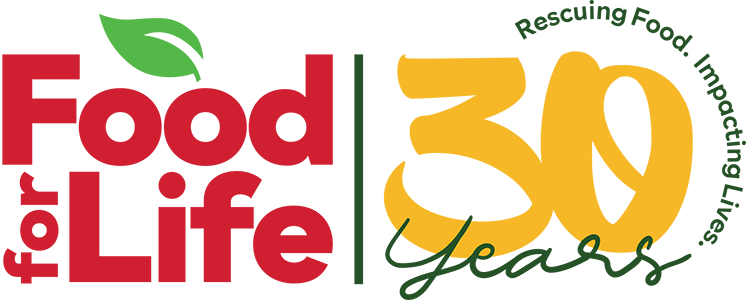Giving monthly is a convenient way to nourish neighbours throughout the year. And all monthly gifts will be matched for 2x the impact! Learn more.
When Food for Life began 25 years ago, it was founded on a core belief that we can do good for people and the planet. That’s why sustainability is at the heart of what we do each day. We find solutions to ensure people have access to good food while also reducing our impact on the environment and diverting inedible food and unrecyclable materials from landfills.
“We have a duty and responsibility to see how we can do our work better in our day to day lives,” says Graham Hill, Executive Director of Food for Life. “Our goal is to make sure that inedible food doesn’t go to landfill.”
Moving inedible food has historically been a real challenge with no place to take food waste. In December 2019, Food for Life made history, becoming the first food rescue program in Canada to install an onsite composter. It was made possible by the Peter Gilgan Foundation, which supports children and families, the environment, and international development.
“Our composter not only helps with food waste but also soiled unrecyclable cardboard,” says Hill, adding that often food rescued by Food for Life comes with a lot of added waste. Currently, a team of volunteers separates inedible food from its packaging and ensures it goes into the correct waste stream. Eventually, the compost program will need a caretaker.
“The idea of putting inedible food into the earth is a no brainer,” says Hill. Currently, Food for Life is working with the Compost Council of Canada and the Investment Readiness Program to turn our compost into a social enterprise that will benefit more and more people and businesses in the Halton and Hamilton communities.
“We are heading for a garbage crisis, sustainability is a community effort. Food for Life can’t do this alone.”
Graham Hill
Food for Life hopes that our compost program will empower others to put the environment first, whether you’re an individual with a small home kitchen or a large food producer who could encourage an industry-wide charge.
“We are heading for a garbage crisis,” says Hill. “Sustainability is a community effort. Food for Life can’t do this alone.”
Entering a new strategic plan for 2021-2023, Food for Life has an ambitious goal of diverting 98 percent of rescued food from landfills, distributing 90 percent to people, 8 percent to animals and compost, and only 2 percent to landfill. We are also committed to continuing to reduce our greenhouse gas emissions. This year alone, we’ve rescued nearly four million pounds of food, reducing more than 12 million kilograms of greenhouse gas emissions.
Another positive outcome we hope to see from our commitment to sustainability is to help people understand the power of rescued food in all forms. Not only is rescued food helping provide GOOD nutritious meals to our friends and neighbours, but it’s also helping to nourish the Earth.
“We hope this will be an inspiration!” says Hill.
Get news from Food For Life delivered right to your inbox and never miss an update.
Food for Life Canada Office
2258 Mountainside Drive
Burlington, ON L7P 1B7
905-635-1106
